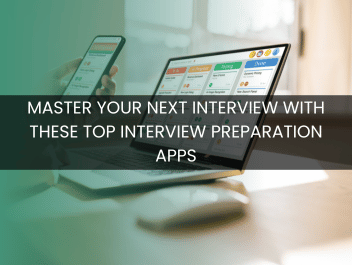
5 Unique Interview Format Examples to Stand Out in Your Next Interview
In the competitive world of job hunting, nailing the format of a job interview can be just as crucial as answering questions. Employers are constantly seeking innovative ways to assess candidates, and understanding these unique interview formats can give you a significant edge. From structured settings to more relaxed approaches, each format offers distinct advantages and challenges.
The traditional interview format is evolving, with companies experimenting with methods like the STAR format or utilizing a panel of interviewers to better evaluate candidate potential. These formats not only test your skills but also how well you adapt to different situations. This adaptability highlights your versatility to employers, a trait highly valued in any industry.
In this article, we'll delve into five unique interview format examples that can help you differentiate yourself in a crowded job market. By mastering these job interview formats, you'll be better prepared to showcase your abilities and impress your future employers.
Table of Content
Introduction
Preparing for a job interview can be daunting for any job seeker. Understanding different interview formats is crucial for effective preparation. With numerous types of interviews, having a clear picture of what each entails is essential. Familiarity with interview structures, such as the job interview format and commonly asked questions, boosts confidence. Guidance from resources like real-life examples or mock interviews can aid in honing interpersonal and communication skills. This article will delve into various interview format examples, highlighting prevalent methods and their significance.
Importance of Interview Format
The interview format sets the stage for engagement between the interviewer and the job candidate. A well-structured format ensures both parties remain focused and navigate smoothly through pertinent topics. The job interview format may vary but generally seeks to assess skills such as problem-solving and adaptability. Having a clear structure helps the hiring manager ask relevant questions and evaluate soft skills fairly. Furthermore, different formats, whether behavioral interviews or technical interviews, cater to specific aspects of a job, ensuring a comprehensive evaluation of each candidate.
Overview of Unique Formats
Interview formats can greatly vary, each with its own distinct approach. Phone interviews are often the initial step, providing an efficient method for screening candidates. They are often followed by virtual interviews, especially in our digitally connected age, offering flexibility in geographical barriers. In-person interviews might include unstructured interviews for a more free-flowing conversation, while semi-structured interviews provide a balance between guided questions and open dialogue. The STAR method is particularly useful for answering behavioral interview questions, allowing candidates to illustrate their previous experiences clearly. Understanding these formats contributes to a more effective interview process, ensuring that both the interviewer and interviewee can engage successfully and mutually assess suitability for the company culture and the role in question.
Interview Format Example 1: Structured Interview
A structured interview is a widely used job interview format that offers a consistent and systematic approach. It involves asking predetermined questions in a specified order, allowing for an objective assessment of job candidates. This interview format example is particularly effective in reducing biases and ensuring fair evaluation. Both employers and candidates benefit from the clarity and predictability of structured interviews, making them a preferred choice for many hiring managers.
Definition and Purpose
Structured interviews are designed to objectively assess the skills and competencies of job seekers. This job interview format consists of a fixed set of questions, which every candidate is asked in the same sequence. The purpose of this consistency is to provide a fair basis for comparison among different candidates. Structured interviews aim to ensure that candidates have equal opportunities to showcase their soft skills, communication skills, and real-life examples of their experiences.
Benefits for Employers and Candidates
Structured interviews offer numerous benefits for both employers and candidates. Employers gain from an organized interview process, which makes it easier to evaluate job candidates against the same criteria. They can fairly compare responses, reducing the impact of personal bias. This job interview format also enhances the validity and reliability of the hiring decision. For candidates, structured interviews provide a clearer understanding of what is expected. Knowing the standardized nature of the questions can help diminish anxiety, allowing candidates to focus on demonstrating their interpersonal skills and fit with the company culture.
Common Questions Used
In structured interviews, common questions often include behavioral interview questions that assess a candidate’s past experiences and actions. For example, hiring managers might use the STAR method to elicit thoughtful responses. An example question could be, "Can you provide a situation where you demonstrated strong communication skills?" This approach allows interviewers to gauge how candidates have handled situations in the past, predicting future job performance. By preparing relevant questions in advance, interviewers can ensure the most is gained from each interaction with job seekers.
Interview Format Example 2: STAR Format
When it comes to job interview formats, one of the most effective interview format examples is the STAR format. This method helps both hiring managers and job candidates organize responses in a clear and concise manner. The STAR format is especially popular in behavioral interviews and is known for eliciting detailed and structured responses. This job interview format enables interviewers to assess a candidate’s soft skills, such as communication skills and problem-solving abilities, by exploring real-life examples of past behavior. By using the STAR method, job seekers can clearly demonstrate how they have previously handled relevant situations, making it easier for companies to evaluate a candidate's fit with their company culture.
Explanation of STAR Method
The STAR method is a job interview format that stands for Situation, Task, Action, and Result. This approach is used to answer behavioral interview questions effectively. The format breaks down the response into four key parts. First, the Situation explains the context, such as a challenge faced at work. Then, the Task describes what needed to be achieved. The Action part details the specific steps taken by the job seeker to address the task. Finally, the Result highlights the outcome of those actions, focusing on achieved goals. Understanding this structure allows both interviewers and candidates to communicate much more efficiently in individual interviews and even virtual interviews.
STAR Format Interview Questions Examples
In a job interview using the STAR format, interviewers often ask questions that assess a candidate's ability to handle various situations. These questions help in evaluating interpersonal skills as well as technical skills in a structured manner. By focusing on example scenarios, candidates can provide responses that demonstrate both their competence and adaptability. Common interview questions that follow the STAR format might include scenarios involving leadership challenges, problem-solving tasks, or overcoming obstacles in a team setting. Such questions prompt candidates to provide real-life examples, giving them the chance to showcase their contributions clearly.
Example 1: Problem Solving
One example of a STAR interview method question focuses on problem-solving, a critical aspect of many job roles. Interviewers may ask candidates to describe a situation where they successfully resolved a complex issue at work. A candidate using the STAR format might first detail a Situation, such as a project that fell behind schedule. Then, the Task would involve getting the project back on track. The candidate would then describe the Actions taken, like reorganizing team roles and improving communication. Finally, the Result could highlight that the project was completed ahead of time and met all quality standards. This structured response helps interviewers assess the candidate’s problems solving abilities effectively.
Example 2: Leadership
Another common type of interview question using the STAR format is centered around leadership. Interviewers may seek to understand how a candidate has demonstrated leadership skills. A typical question might ask the candidate to provide an example of a time they led a project or team. In their response, the candidate should outline the Situation that required leadership, such as a team facing low morale during a challenging project. The Task would involve inspiring and guiding the team to maintain productivity. The Actions taken could include holding regular meetings for open communication and offering support. The Result should show how these efforts led to improved team morale and successful project completion. Such STAR interview responses help interviewers gauge a candidate's potential impact on company culture.
By mastering the STAR format, both job seekers and hiring managers can conduct more effective, meaningful interview processes. This popular job interview format allows for clarity and precision, making it an essential tool in the recruitment and hiring process.
Interview Format Example 3: Panel Interviews
Panel interviews are a popular type of interview format where multiple interviewers assess a job candidate. This interview format example involves a group of individuals, typically consisting of the hiring manager, team members, and possibly a representative from human resources. Panel interviews are effective in evaluating various aspects of a candidate's skills, communication abilities, and overall fit for the company culture. They can be conducted in person, as a virtual interview, or over the phone. Understanding the job interview format of a panel interview can help candidates prepare effectively and showcase their soft skills.
Structure and Dynamics
The structure of a panel interview is designed to offer diverse perspectives on the candidate. Each interviewer may focus on different aspects; for instance, one may assess technical skills, while another evaluates interpersonal skills. This format ensures a well-rounded assessment. Dynamics in a panel interview can be challenging since candidates must engage with multiple individuals, maintaining eye contact and demonstrating confidence. It's important to address each panel member when answering questions, displaying strong communication skills throughout the process.
Pros and Cons
Panel interviews come with distinct advantages and disadvantages. On the positive side, this job interview format allows for a comprehensive evaluation of the candidate by different stakeholders within the company. It can quickly provide a balanced view of the applicant's capabilities. However, the downside includes the potential for candidates to feel overwhelmed by facing several interviewers simultaneously, which may impact performance. Additionally, panel interviews can be logistically complex to organize and coordinate each participant's schedule, making them challenging for companies to execute efficiently.
Sample Panel Questions
In a panel interview, questions can range from technical inquiries to behavioral interview questions that test the candidate's problem-solving abilities and adaptability. A common interview question might be, "Can you give us a real-life example of how you handled a challenging situation at work?" This question follows the STAR method, prompting candidates to describe the Situation, Task, Action, and Result. Panel members might also ask relevant questions about specific projects or situations, allowing the candidate to elaborate on their experiences and demonstrate their suitability for the role.
Understanding these aspects of the panel interview format example will prepare job seekers to effectively engage in this type of interview, highlighting their abilities to fit within a company's structure and culture.
Interview Format Example 4: Informal Interviews
Informal interviews offer a relaxed approach to the job interview process. Unlike formal job interviews where candidates often face structured and technical interview questions, informal interviews allow both parties to interact casually. This type of interview format example can help showcase interpersonal skills and assess the candidate's fit with the company culture. Informal interviews are versatile, allowing hiring managers to evaluate a candidate's soft skills more effectively. Job seekers often find this type of interview less stressful, providing a space to express their personality naturally. As a job interview format, it encourages open conversations, making it an ideal choice for roles requiring strong communication skills.
Characteristics of Informal Settings
In informal settings, the environment is usually relaxed, which helps to foster open communication. These interviews often take place in casual environments like coffee shops instead of the conventional office setting. The dialogue in informal interviews tends to be more fluid and spontaneous, allowing for real-life examples to be shared organically. The job interview format here is unstructured and emphasizes the personal interaction between the hiring manager and the job candidate. Questions are often behavioral, focusing on the candidate's past experiences and how they handled specific situations. This approach contrasts with the structured nature of technical interviews and the stringent behavioral interviews, where every response is meticulously evaluated.
Situations Best Suited for Informal Interviews
Informal interviews are particularly effective for roles requiring exceptional interpersonal skills and genuine team involvement. They are appropriate when the hiring manager wants to gauge how well a candidate meshes with the company's culture. This job interview format is ideal for assessing candidates who will be working in collaborative environments or roles demanding significant client interaction. Informal interviews are also suitable during the early stages of the interview process, serving as a preliminary assessment before delving into more structured and technical evaluations. Additionally, they work well for evaluating creative roles where communication skills and the ability to think on one's feet are crucial. In summary, informal interview settings aim to create a candid space where both the interviewer and interviewee can understand each other better. They complement more structured interview formats by providing insights that traditional methods might overlook.
Interview Format Example 5: Case Study Interviews
Case study interviews focus on examining a job candidate's problem-solving skills. These interviews are commonly used by consulting firms to test how applicants think through complex, real-world problems. In a typical case study interview, the interviewer presents a business scenario to the candidate, who must then analyze the issue and suggest a solution. This format allows hiring managers to observe the candidate’s analytical abilities, communication skills, and soft skills in action. A well-executed case study interview can demonstrate how an applicant approaches challenges, collaborates, and ultimately provides viable solutions. Through this job interview format, employers can gauge whether a candidate's problem-solving approach aligns with the company culture and operational style.
Approach and Key Elements
The approach to case study interviews centers on evaluating how effectively job candidates can frame and solve problems. At its core, this interview format demands a structured thought process. Candidates should use a systematic approach, like the STAR method, where they identify the problem, analyze the situation, and propose actionable solutions. One of the key elements in these interviews is clear communication. Job seekers should articulate their thought process, making sure to engage with behavioral questions that highlight their interpersonal skills. Another element is adaptability, as the scenarios can evolve based on new information or challenges introduced by the interviewer. Successful candidates often showcase their technical skills alongside soft skills, demonstrating a holistic ability to tackle various aspects of a problem. Key takeaways for candidates include practicing with mock interviews and real-life examples, preparing them to handle any type of interview.
Example Scenarios to Expect
Candidates in case study interviews can expect various example scenarios that test their analytical and decision-making abilities. For instance, they might be given a scenario involving market entry strategies for a product in a new region. Here, the interviewer will evaluate the candidate's ability to analyze market research and propose feasible entry options. Another common example is addressing operational inefficiencies within a company. Job candidates are asked to identify bottlenecks and suggest improvements that align with company goals. These scenarios are designed to assess how well the interviewee can integrate business knowledge with creative problem-solving. By exploring such relevant questions, candidates can showcase their expertise in addressing complex business challenges. Unstructured interviews can sometimes form part of the process, allowing the candidate to steer the conversation while demonstrating their knowledge and critical thinking. Through individual interviews, hiring managers can refine their perception of a candidate's fit for the role and the organization's needs.
Conclusion
In today's competitive job market, understanding the interview format example can significantly enhance a job seeker's chances of success. Whether it's a structured, semi-structured, or unstructured interview, familiarizing yourself with various job interview formats can give you an edge. The interview format example provides insight into the types of interviews you may encounter, including phone interviews, virtual interviews, and even behavioral interviews. Being knowledgeable about these formats helps you anticipate what hiring managers might focus on, such as communication skills, soft skills, and company culture.
Mastering the STAR interview method and preparing for common interview questions can streamline your preparation. Remember, the essence of a job interview lies in effectively showcasing interpersonal skills, real-life examples, and eye contact. For job candidates aiming to leave a lasting impression, understanding different formats is crucial.
Choosing the Right Format for Your Needs
Choosing the right interview format for your needs can greatly influence your performance. Different job roles and company cultures warrant different approaches. Understanding job interview formats in advance allows you to tailor your preparation accordingly. Human resources may opt for behavioral interviews to gauge soft skills and past behavior, making formats like the STAR method indispensable.
Structured interviews are highly effective for technical interviews where job candidates must demonstrate specific skills. Conversely, unstructured interviews may better suit creative roles. It's essential to consider which format aligns best with the job you're applying for. Each format serves distinct purposes, and understanding them can significantly impact your approach.
Whether facing individual interviews or a panel, preparing adequately can make a difference. Knowing the interview format example ensures you address the relevant questions effectively. Success lies in adapting to the format and showcasing your expertise and adaptability.
Final Tips for Success in Any Interview Format
Success in any interview format hinges on several key takeaways. First, research the type of interview you will undergo. Knowing if it's a phone, virtual, or person interview allows you to adjust your preparation. Mock interviews can mimic real scenarios, giving you a chance to refine your responses.
Next, emphasize communication skills and interpersonal skills. These are universally valued in interviews and can make or break an impression. Behavioral questions often arise, and practicing real-life examples using the STAR interview method is beneficial.
Lastly, maintain confidence and authenticity. Hiring managers appreciate genuine candidates who display critical thinking and problem-solving skills. By understanding various job interview formats and adapting to them, you maximize your chances for success. Each format requires a unique approach, but with preparation and a clear understanding of expectations, you can excel.
Looking For Job Satisfaction on the long run?
Please feel free to contact our experts
Call to ask any question
+91-9319336222Monday to Saturday
(9:00 AM to 8:00 PM)Resent Blogs
10 Things to Do During an Interview to Impress Your Future Employer
Learn MoreCrafting Your Personal Narrative: A Guide to Writing About Yourself
Learn MoreTop 10 Essential Interview Questions and Expert Answers for 2025
Learn MoreAce Your Next Interview: Essential Questions and Expert Answers for 2025
Learn MoreFirst-Time Manager Interview: Crucial Questions and Strategies for Success
Learn More150 Essential General Knowledge Questions for Interviews in 2025
Learn MoreMaster the Google Interview: Strategies for Success in 2025
Learn MoreHow Can You Describe Yourself Professionally? 5 Key Strategies You Need to Know
Learn MoreMastering the Art of How to Take Interview: Essential Techniques for Success
Learn More25 Essential HR Interview Questions and Answers PDF You Can't Ignore
Learn More7 Tips to Ace Your HR Screening Round and Land Your Dream Job
Learn More10 Essential Tips for Acing Your Interview Exam
Learn More5 Unique Interview Format Examples to Stand Out in Your Next Interview
Learn More5 Powerful Techniques for a Memorable Interview Introduction
Learn MoreMaster Your Next Interview with These Top Interview Preparation Apps
Learn MoreMastering the Art: Top Interview Questions for 12th Class Students
Learn More7 Must-Know Interview Questions for Freshers to Ace Your Job Hunt
Learn MoreMastering Interview Questions for HR Position with Answers: Strategies for Success
Learn More12 Essential Interview Questions for Recruiter Position You Should Prepare For
Learn More10 Must-Know Interview Questions UK Employers Love to Ask
Learn More10 Creative Interview Writing Examples to Spark Your Imagination
Learn More15 Essential Managerial Interview Questions for Fresher
Learn MoreHow to Ace Your Next Mock Interview: Tips and Strategie
Learn More7 Key Strategies for a Successful Mock Interview Sessio
Learn MoreThe Ultimate Guide to Model Interview Questions: What Y
Learn More5 My Self Question Exercises to Unlock Your True Potent
Learn More10 Normal Questions That Can Spark Deep Conversations
Learn More15 Essential Personal Interview Questions for Freshers
Learn More10 Essential Phone Interview Questions You Can’t Afford
Learn More15 Essential Sales Interview Questions and Answers for
Learn More7 Key Situational Interview Questions Every Employ should ask
Learn More15 Essential Software Developer HR Interview Questions You Need to Prepare For
Learn MoreMastering the Technical Interview: Essential Questions and Answers
Learn MoreTop Strategies for Responding to Tell Me About Yourself in a Student Interview
Learn MoreTop 10 Interview Questions and Expert Answers
Learn MoreMastering the Art of Interviewing: 50 Tough Questions and Smart Answers
Learn MoreConnet Us
Unlock Your Dream Career Potential - Get Expert Advice From Our Counselling Experts























